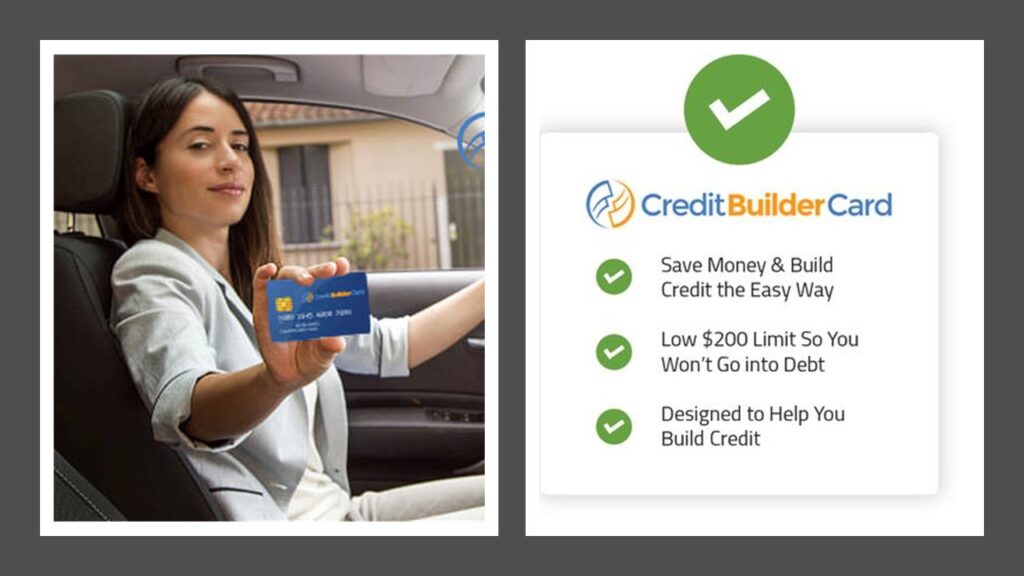
Pay All of Your Bills on Time, Every Month
This includes your utility bills, mortgage and auto payments, personal loans, insurance, and all of your revolving lines of credit like store credit cards. Check your credit report at least once a year for negative and inaccurate items.
Open a Checking and Savings Account
The first step in establishing good credit is to open a Checking Account. Chase is offering a bonus when you open a new checking account and set up a direct deposit with other qualifying activities..
This will enable you to establish your money-managing habits.
Your savings and checking account can also pave the way for a bank-issued credit card or personal loan.
Avoid overdraft fees and bounced check fees.
Not only does this cause you to incur unnecessary bank fees and lose a big chunk of spending money, but it will impact you negatively when you need to apply for a personal loan, auto loan, or mortgage loan with the bank or credit union.
Monitor Your Credit Card Activity
Follow these 5 credit card tips to protect yourself:
- PAY ON TIME. Companies are required to deliver your bill at least 21 days before your payment is due. Plan accordingly.
- STAY BELOW THE LIMIT. You will, however, be given the choice to “opt-in” to over-the-limit transactions.
- TRY TO MAKE MORE THAN THE MINIMUM PAYMENT. Even if it’s $10.00 extra, you will pay less interest in the long run.
- SHOP FOR THE BEST DEAL. Don’t forget to check your local banks or credit unions when you’re looking for a card with the best interest rate.
- INTEREST RATE CHANGES. Read your mail. They may give you 45 days notice on a rate change. But, you won’t know if you don’t open the envelope if it looks like junk mail.
Credit Card Interest Rates and Other Fees
Your credit card company has to tell you when they’re increasing your interest rate on an existing balance unless you’re more than 60 days late with a payment.
Also, they can’t increase your rate for the first 12 months after you open an account, with some exceptions.
Do Not Max Out Your Credit Card
Never charge more than 25-30% of the available balance on any of your credit cards.
If your credit card limit is $500.00, you should not charge more than $150.00, unless it is absolutely necessary.
Banks like to see a nice record of on-time payments, and credit cards that are not maxed-out.
If you are carrying high balances on your credit cards, then make paying them down below 30% a priority.
It is easy to get hit with over-limit fees.
Keep in mind that a credit card account close to its credit limit will cause a big drop in your credit score.
If you have late or missed payments in the past, this will negatively impact your credit history. During financially difficult times, at the very least, make the minimum payments.
Whenever possible, try to make payments above the minimum due amount. This way, you will lessen the amount of interest that you pay. Better yet, do not charge more than you can afford to pay off each month.
Avoid Late Payment Charges and Penalty Fees
Try to avoid late payment charges and penalty rates. Problems occur quickly when you have late fees and higher interest rates to pay, especially during a crisis period.
Setting Up Automatic Bill Payments Can Help
One good method for maintaining good credit is to run only your utility bills on your credit cards each month.
Set up automatic payments to your credit card, and then pay the balance in full before the due date.
This ensures that your utility bills get paid on time automatically.
How Long Does It Take to Pay Off Your Credit Card Balance?
It will say on your bill how long it will take if you only make minimum payments.
Your monthly statement should show how much you would need to pay each month to pay off your balance within a certain period.
Maintaining Good Credit Requires Discipline
As long as you keep the habit of paying off your credit card balance each month, you will develop a positive credit history and your score will continue to go up.
The length of time that each of your accounts has been active is a major factor in your credit history and your credit score.
Keep your aged accounts open as long as possible, even if you are no longer actively charging on the card.
Every few months, make a small purchase at a local store, online, or a gas station, then pay it off in full. Remember that this requires discipline.
Your Credit Reports and Credit Scores
You can obtain your 3 Credit Reports and 3 Credit Scores from the 3 major Credit Bureaus (Experian, TransUnion, Equifax),
Each of the bureaus’ credit report may contain different information (positive and negative items) and different scores.
Need to Re-Build Your Credit or Establish New Credit?
Start with a secured credit card with a $200.00 deposit with CreditBuilderCard.
Keep your balance low and make payments on time to build up a positive credit history.

Following these recommended steps consistently will help you build and maintain a positive credit history, increase your credit score, and allow you to qualify for better loans and lower interest rates.
Keep up the momentum. Even if you have less-than-perfect credit, maintain a timely payment system and you will develop a positive credit history.
More Credit Card Resources: Consumer Financial Protection Bureau

Ways to Build Positive Credit
- Essential Christmas Songs for the Holiday Season
- Stylish Outdoor Fire Pits and Patio Heaters
- How to Create an Ergonomic Workspace at Home or Work
- Benefits of Humor and Laughter in Life
- Balancing Success: Practical Self-Care Strategies for Entrepreneurs
- Guides to Backpacking, Mountain Biking and Hiking Georgia
- Ways to Pay It Forward and Change Lives
- Email Marketing Campaigns for Small Business Owners
- Guide to Martha Stewart’s Hugely Successful Concept and Art of Presentation
- Guides to Backpacking and Hiking Canada
- Timeline of Events Leading to Rudy Giuliani’s Legal Troubles
- Backpacking, Hiking, and Camping Safety Guides
- Moving and Relocating to Atlanta: How to Find Your New Home
- Money Matters: Insider Tips to Buying a Home
- Renting vs Owning a Home
- Ways to Build Positive Credit
- Do It Yourself Credit Improvement Process
- A Trail of Clues to the Murder of Nicole Brown Simpson
- How Centra Tech’s Bitcoin Cryptocurrency Scheme Was Hatched and Discovered
- Starting a New Business as a New Mother: Tips for Thriving
- Guides to Backpacking and Hiking the Carolinas
- Guides to Hiking New York State and New Jersey
- Guides to Hiking California and Nevada
- The Tragic Murder of Rebecca Postle Bliefnick
- How a Grad Student Murder Spotlights Female Joggers’ Safety Concerns
- How Massive Commercial Financial Fraud Was Discovered in Singapore
- Did Billy Ray Turner Conspire with Sherra Wright to Kill Former NBA Player Lorenzen Wright?
- How Operation Rebound’s 7-Year Cold Case was Finally Solved
- Mastering DIY Marketing: Essential Skills and Strategies for Small Business Owners
- How a GeoLocation Expert Tracked a Killer
- Transgender Law Enforcement Officer Denied Medical Coverage for Gender Dysphoria
- How Video Surveillance Cameras Helped Identify and Track a Killer
- How Investigators Solved the Murder Mystery of Army Sergeant Tyrone Hassel III
- How a Love Obsession Led to the Brutal Murder of Anna Lisa Raymundo
- How Stephen Grant Tried to Get Away with Killing His Wife
- How Unrelenting Catfish Schemes Led to Fatal Suicide
- How Pain Clinic Owners Turned Patients’ Pain into Enormous Profits
- How to Recognize a Pain Pill Mill in Your Community
- How Authorities Have Shuttered Georgia Pain Clinics Massive Pain Pill Distributions
- How Pain Doctors Massive Opioid Prescriptions Lead to Pain Pill Overdose Deaths
- How Authorities Are Dismantling Pennsylvania Pain Clinics Prescribing Excessive Amounts of Opioid Pain Pills
- How Authorities Are Dismantling Alabama Pain Clinics Pain Pill Schemes
- How the Gilgo Beach Homicide Investigation Has Progressed
- How NYC Architect was Linked to Three Women’s Remains Found on Gilgo Beach
- How Investigators Discovered a Serial Killer Hiding in Plain Sight
- How Police Discovered the Concealed Murders of the Chen Family
- How a Vicious Child Custody Battle Led to the Murder of Christine Belford
- How Authorities Finally Captured a Serial Killer in Southern Louisiana
- How Authorities Are Busting Pill Mills in The Carolinas
- How Montgomery County Police Quickly Unraveled the Murder of a Retail Store Employee in Bethesda
- How a Child Rapist and Murderer Almost Got Away with His Crimes in England
- How Authorities Are Dismantling Pill Mills in the United States
- How Federal Agencies Are Dismantling Michigan Pain Clinic Doctors Scheme to Distribute Enormous Amounts of Opioid Pain Pills
- How Authorities Are Cracking Down on Virginia Pain Clinics Massive Pain Pill Operations
- How Authorities Are Honing in on Kentucky Pain Clinics Distributing Opioid Painkiller Pills for Profit
- How Federal Agencies Are Shutting Down Maryland Pain Clinics Operating as Pill Mills
- How Federal Agencies Are Dismantling New York Pain Clinics Vast Pain Pill Operations
- How the Senseless Murder of Tequila Suter Was Quickly Solved
- How Authorities Are Dismantling Ohio Pain Clinics Prescribing Excessive Pain Pills
- How Authorities are Dismantling Tennessee Pain Clinics Prescribing Massive Quantities of Opioid Pain Pills